The Hoover Indigenous Student Seminar offers top college students and recent graduates an opportunity to engage with scholars and policy practitioners on the campus of Stanford University.
Attendees of the week-long, fully funded program participate in focused seminars led by scholars and policy practitioners who focus on issues affecting indigenous communities in the United States and elsewhere.
Please see below to reference the faculty for the 2025 Indigenous Student Seminar.
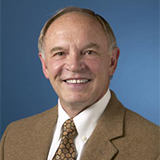
Terry Anderson is the John and Jean De Nault Senior Fellow at the Hoover Institution. He is the past president of the Property and Environment Research Center in Bozeman, Montana, and a professor emeritus at Montana State University, where he won many teaching awards during his twenty-five year career. Anderson authored Free Market Environmentalism (third edition, 2015) and cofounded the concept of using markets and property rights to address environmental issues. Dr. Anderson received his PhD from the University of Washington and has been a visiting scholar at University of Oxford, University of Basel, Clemson University, and Cornell University and a Fulbright Fellow at the University of Canterbury.

Aldo Aragon is a Post-Baccalaureate Fellow at Dumbarton Oaks, a Harvard University research facility in Washington, D.C. dedicated to Pre-Columbian studies. He holds an A.B. cum laude from Harvard College, where he wrote an undergraduate thesis on the Pacific Islands region for the History Department. Aldo is a 2023 alum of the Hoover Institution's Indigenous Student Seminar and is now in his second year of serving as a teaching assistant to this program.

Adam Crepelle is a professor at Loyola University Chicago School of Law. His research emphasizes how many problems in Indian country are a consequence of outdated and inefficient federally imposed rules. He is the author of the book Becoming Nations Again: The Journey Towards Tribal Self-Determination, exploring economic development and self-governance in Indian country as well as numerous other academic publications. Crepelle has served as an associate justice on the Court of Appeals for the Pascua Yaqui Tribe and as an associate justice on the Tlingit and Haida Indian Tribes of Alaska Supreme Court.

Haley Day Rains (Mvskoke) is a photographer, filmmaker, and UC President’s and Andrew W. Mellon Foundation Postdoctoral Fellow at UC Santa Cruz (film and digital media). She was born and raised in Montana. Rains is an alumna of Haskell Indian Nations University (a former Indian boarding school) and earned her MA and PhD in Native American studies from the University of California, Davis. In her research and creative practice, Rains explores how traditional and contemporary Native American cultural and economic practices offer new perspectives on the American West that encourage its inhabitants to embrace cosmologies centered on social and environmental sustainability.

Donn Feir is a professor of economics at the University of Victoria in British Columbia, Canada, and has published on reconciliation, modern Indigenous labor market experiences, health and the impact of historic policies on Indigenous economies and people, as well as on topics relevant to gender diverse people. Feir is a research associate at the National Bureau of Economic Research and formerly worked at the Center for Indian Country Development at the Federal Reserve Bank of Minneapolis. Feir received their PhD from the Vancouver School of Economics at the University of British Columbia.

Dustin Frye is an assistant professor of agricultural and applied economics at the University of Wisconsin, Madison. A citizen of the Northern Cheyenne Nation, his research focuses on the impact of federal policy on economic conditions across Native American reservations. Dr. Frye’s work leverages historical data, including census and land records, to illuminate the consequences of property rights, governance, and other institutions on Indigenous economic development and self-determination. He was formerly a Hoover Institution Campbell Fellow at Stanford University, and his research has been supported by several grants, including the National Science Foundation.

Deanna Kennedy is the dean of the College of Business and Economics at Western Washington University. She is a tribal member of the Cherokee Nation of Oklahoma who researches business operations and Indigenous business practices. She is an editor of the book American Indian Business: Principles and Practices that advances the way traditional business concepts are translated into culturally based business strategies for Indigenous entrepreneurs and managers. She is also associate editor of the Indigenous Business and Public Administration journal.
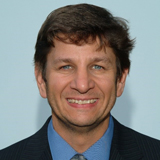
André Le Dressay is the director of the Tulo Centre of Indigenous Economics and director of Fiscal Realities Economists. He has worked with Manny Jules for thirty years on an institutional framework for First Nation governments to implement economic self-determination. About two-thirds of First Nations in Canada are using parts of this framework today. He has authored several articles and a textbook on this work, which discuss the story and mathematics of First Nation economic self-determination.

Robert J. Miller is the Jonathan and Wendy Rose Professor of Law at the Sandra Day O’Connor College of Law, Arizona State University. He is also a citizen of the Eastern Shawnee Tribe and chief justice of the Pascua Yaqui Tribe.
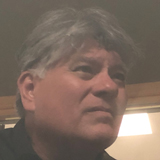
Richard Monette was twice elected to serve as chairman and CEO of the Turtle Mountain Chippewa Tribe. Monette is a professor of law at the University of Wisconsin, Madison, where he teaches federal Indian law, conflict of laws, state constitutional law, and water quantity law. For thirty years, Monette has served as the faculty director of the Great Lakes Indigenous Law Center. Early in his career, he served as a staff attorney for the Senate Committee on Indian Affairs under Senators Dan Inouye, John McCain, and Dan Evans.

Dominic (Nick) Parker is the Anderson-Bascom Professor of Applied Economics at the University of Wisconsin, Madison and the Ilene and Morton Harris Senior Fellow at Stanford’s Hoover Institution where he codirects the Renewing Indigenous Economies Project and Markets vs. Mandates program. Nick's expertise is in economic development and environmental policy with a focus on property rights, rule of law, and governance. His research appears in economics, law, and science journals and is featured in diverse outlets including Tribal Business News, Freakonomics Radio, The Wall Street Journal, The Atlantic, Reason, and Mother Jones.
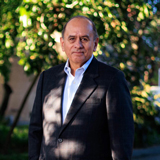
C. Matthew Snipp is a demographer in the Department of Sociology at Stanford University and an enrolled member of the Cherokee Nation of Oklahoma. He also serves as the vice provost for faculty advancement at Stanford. Much of his research and writing focuses on American Indian and Alaska Native demography, especially on the economic well-being of Native people and economic development in Native communities.
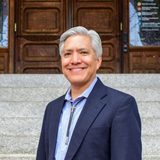
Daniel Stewart is a professor of entrepreneurship and director of the Hogan Entrepreneur Center at Gonzaga University. His research appears in journals such as American Sociological Review, Organization Science, and American Indian Culture and Research Journal. He coedited two major volumes on Native American business and economics: Creating Private Sector Economies in Native America and American Indian Business. His work has been featured on NPR and Indian Country Today. Stewart is also a business owner and a member of the Spokane Angel Alliance. He was recently selected as a member of the CNBC Disruptor 50 Academic Advisory Board.

Thomas Stratmann is a distinguished university professor at George Mason University. He is a professor of economics and holds a courtesy appointment at the Antonin Scalia Law School. His research spans political economy, law and economics, health economics, and experimental economics. His work is published in top academic journals such as the American Economic Review, the Journal of Political Economy, the Stanford Law Review, and The Journal of Legal Studies.

Margaret Tallmadge is the Vice President of Market Strategy at Colusa Indian Energy (CIE), a 100% Tribally owned energy infrastructure firm. She brings over a decade of experience leading development and contracting for 3+ GW of solar and battery storage projects. Her background spans interconnection, power marketing, and energy policy across Tribal, utility, and commercial markets. She previously held leadership roles at Navajo Power and Ranger Power, and helped launch Oregon’s $100M+ Portland Clean Energy Fund. A citizen of the Cherokee Nation, Maggie holds degrees from Yale and Wellesley and currently chairs national energy policy committees for ATNI and NCAI.

Dr. Alex Wesaw is a Director and Relationship Manager within Huntington National Bank’s Native American Financial Services team. He is a citizen of the Pokagon Band of Potawatomi Indians, where he has served on the Band’s Tribal Council and Gaming Authority since 2017, currently as the elected Tribal Treasurer—overseeing all of the Band’s financial resources. Alex previously served as the Chairman of the Pokagon Development Authority, which established one of the Band’s non-gaming economic development arms as well as its cannabis enterprise. Prior to joining Huntington, Alex grew the American Indian Relationship division at the Ohio History Connection, helped earn World Heritage status for the Hopewell Ceremonial Earthworks, managed relationships with 46 federally recognized Tribal governments, and oversaw the institution’s NAGPRA department. Alex holds a PhD in city & regional planning from The Ohio State University and a master’s in public administration and bachelor’s in organizational communication and public advocacy both from Ohio University.
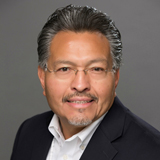
Derrick Watchman is an experienced executive with over 35 years of commercial and tribal business experience in gaming and banking. Derrick is President of Sagebrush Hill Group LLC, a tribal affairs, financial advisory services, and economic development advisory company based in Window Rock, Navajo Nation, Arizona. Mr. Watchman holds an MBA from the University of California and a bachelor’s degree from the University of Arizona.

Ron W. Goode has served as Tribal Chairman of the North Fork Mono Tribe since 1983. A U.S. Army veteran and retired community college professor in Ethnic Studies, he is also a published author and holds a 6th-degree black belt in Judo. Ron is nationally recognized for his work in education, cultural preservation, and Indigenous environmental leadership. He co-founded and chaired all four California Tribal Water Summits and received honors from Governor Brown and the California Legislature for his leadership. In 2025, he will receive an Honorary Doctorate from CSU Fresno. Ron leads tribal archaeological and ecological teams in cultural burns, meadow restoration, and mapping of ancestral homelands. His work is conducted in partnership with national parks, universities, and Tribal Nations. He regularly shares his expertise through writings, seminars, and webinars, contributing to the advancement of Tribal sovereignty, sustainability, and cultural revitalization.







